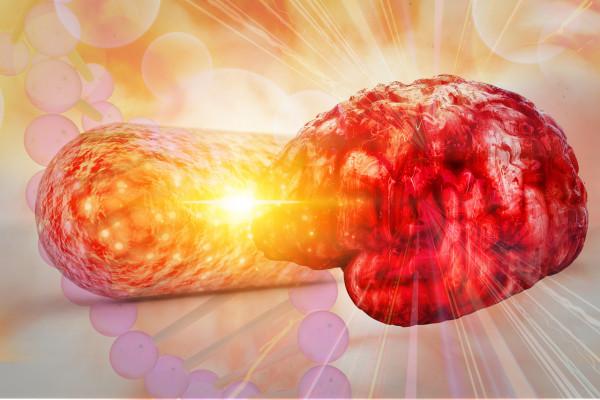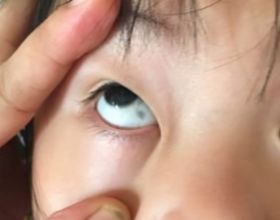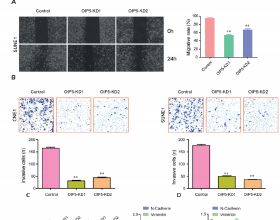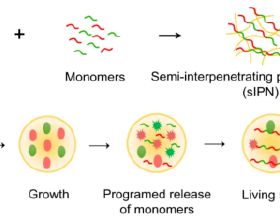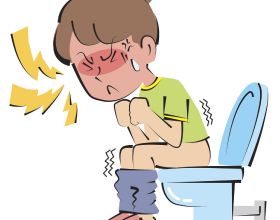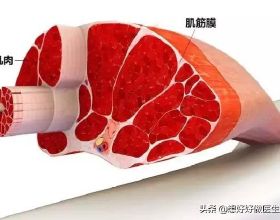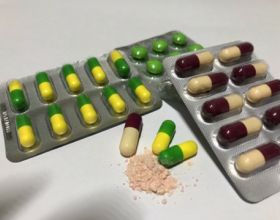編者按:
功能性腸病,如腸易激綜合徵(IBS)和功能性便秘(FC)等,正在影響著越來越多的人。資料顯示,在我國,IBS 的發病率為 7.5%,FC 的發病率為 6%。然而,針對 IBS 和 FC,目前尚未有良好的治療手段。不過近年來的研究表明,微生物組或許在這類疾病的發生和發展過程中起著重要的作用。
今天,我們共同關注功能性腸病與微生物組之間的關係。希望本文能夠為相關的產業人士和諸位讀者帶來一些啟發和幫助。
功能性腸病
腸易激綜合徵(IBS)和功能性便秘(也叫做慢性特發性便秘,FC)是當前最普遍發生、研究最充分的兩種功能性腸病[1]。雖然這兩種疾病並不致命,但它們會影響生活質量、人際關係和生產力,並對個人和整個社會造成了巨大的經濟負擔。
此前,FC 和便秘型 IBS(IBS-C)被認為是同一種疾病,但現在它們被認為是不同的兩種疾病,具體的診斷標準如下:
(1)IBS的診斷標準
按照羅馬 IV 標準,當患者在過去 3 個月內平均每週至少有1天出現複發性腹痛,且伴有以下 2 項或 2 項以上異常改變時被診斷為 IBS[1]:
•排便(排便可能會增加或未發生改變)
•大便頻率的變化
•大便形態或外觀的變化
(2)FC的診斷標準
FC 患者不應符合 IBS 的標準,雖然可能也會出現腹痛和/或腹脹,但並不是主要症狀。症狀應至少在診斷前 6 個月出現,並在過去 3 個月也應表現出症狀。症狀必須包括以下兩種或多種:
•超過 1/4(25%)的時間排便感到費力
•超過 1/4(25%)的時間排便乾硬(參照 Bristol 糞便性狀量表-BSFS 分級 1 或 2 級)
•超過 1/4(25%)的時間排便有不盡感
•超過 1/4(25%)的排便時間有肛門直腸梗阻或阻塞感
•超過 1/4(25%)的排便時間需要手法輔助(如用手指協助排便、盆底支援)
•每週自發排便少於 3 次
腸道微生物組和IBS
雖然 IBS 的發病機制是多因素的,但腸-腦軸的概念已經作為一個有用的正規化,來解釋從皮層到腸道肌肉、神經和粘膜的各種功能障礙,以及所導致的不同症狀表現。這些表現包括內臟超敏反應、腸道運動改變、中樞高度警覺和應激反應加重。其他因素,如遺傳傾向、心理困擾和神經激素等也會產生相互作用,導致 IBS 不同的表型,以及不同嚴重程度的症狀[3-6]。
最近,腸道和大腦之間的連線又增添了一個新的參與者——微生物組,並引出了微生物-腸-腦軸的概念。事實上,動物模型中有誘人的證據表明,腸道細菌可能會影響“大腦”,甚至導致神經和神經精神疾病。因此,微生物組已經成為各種疾病諸如 IBS、帕金森病(PD)和抑鬱症的潛在治療靶點[7]。
有大量的實驗資料表明,腸道微生物有能力影響腸道屏障、腸道免疫系統、胃腸道神經肌肉以及中樞神經系統的結構和功能[8-11]。事實上,將 IBS 患者的糞菌移植到無菌小鼠的實驗已經證明,糞菌會改變胃腸道轉運並誘發內臟超敏反應[12,13]。
由於在發生急性腸道細菌、病毒或寄生蟲感染後可能會出現 IBS 的症狀,因此腸道微生物組的變化可能是造成 IBS 的一個因素。最近,測序技術已被用於研究 IBS 患者糞便和結腸微生物組,以及探究各種臨床和人口統計資料與微生物組之間的關係。儘管資料仍然有限,而且並不總是一致的,但很明顯的一點是:與健康個體相比,IBS 患者的糞便微生物組發生了改變[15]。
由於研究群體數量的有限性,以及患者選擇和方法上的差異,目前如何解釋可用的資料是一個挑戰,更不用說還有未能解釋的諸如飲食、治療、精神疾病共病和症狀嚴重程度等混雜因素的影響。
儘管如此,這些資料還是有一些共同點:IBS 患者的糞便和結腸黏膜中的微生物組是不同的,糞便微生物組不僅可以預測症狀嚴重程度,而且還可以預測其對一種常見干預——低 FODMAP 飲食的反應。
現在非常清楚的是,期望用單一微生物表徵 IBS 是非常幼稚的想法。由於 IBS 的症狀和嚴重程度的異質性,以及飲食、性別、藥物和其他因素對病情的影響,關於表徵 IBS 的微生物組這一問題的答案目前還難以明確,我們應該做好長期準備,以攻堅這些問題。
不過,最近一項縱向多組學研究的資料,能夠識別 IBS 亞型特異性,以及與症狀相關的微生物的組成和功能變化,也能夠將某些細菌代謝物和宿主體內與 IBS 相關的生理機制聯絡起來[18]。
紊亂的微生物組或宿主對微生物組的異常反應很可能涉及到腔內分子的產生,這些分子對運動、感覺、腸道屏障功能、免疫啟用,以及中樞神經系統的交流產生了生物學影響。
小腸細菌也可能發揮作用:儘管小腸細菌引起 IBS 的確切發病率和它在其中發揮的作用尚不明確,但已有證據表明小腸細菌過度生長(SIBO)與 IBS 有關[19]。
SIBO 目前的診斷方法主要是空腸抽吸培養和呼氣試驗,但兩者都具有各自的侷限性[20]。迄今為止最詳細的研究證明,IBS 患者體內的小腸微生物組發生了改變,但 SIBO 與 IBS 的臨床症狀無關[21]。
雖然微生物-腸-腦軸這一概念的出現令人興奮,但離我們理解它在 IBS 症狀發生中的確切作用還有很長的路要走。
與此同時,與調節微生物組的干預措施的臨床試驗給出了關於腸道細菌在 IBS 中起作用的最令人信服的臨床證據,這些干預措施包括飲食、抗生素、益生元、合生劑、益生菌和糞菌移植/轉移[22,23]。但這些干預是如何在治療 IBS 中起到效果的,目前還不清楚。
飲食、微生物組和IBS
膳食纖維是治療 IBS 歷史最悠久的飲食干預措施之一。(合成和天然的)可發酵、可溶性纖維可以增加糞便的頻率,改善糞便性狀的稠度並加快胃腸道運輸,因此成為了治療以便秘為主要特徵的 IBS 患者的最佳選擇之一。
纖維是腸道微生物產生乙酸、丙酸和丁酸等短鏈脂肪酸(SCFAs)的關鍵底物,而且還可以為結腸細胞提供能量來源,並調節腸道完整性、免疫和通透性[24]。
低 FODMAPs 飲食在 IBS 的治療中得到了廣泛的應用,其療效得到了臨床試驗的支援[25]。FODMAPs 是一種小分子的、具有滲透活性的碳水化合物,在小腸中不易被吸收,但可以被結腸微生物快速發酵並釋放出氣體和 SCFAs,導致 IBS 症狀的惡化,如腹痛和腹脹。因此,毫無疑問,低 FODMAP 飲食會影響結腸微生物組,導致一些重要的共生菌的減少[26],然而這一發現的長期後果目前尚不清楚。
益生元、益生菌、後生元和IBS中的微生物組
Huaman 和他的同事在一項隨機對照試驗中,比較了低 FODMAP 飲食和低聚半乳糖(GOS)益生元對功能性胃腸疾病和腸胃脹氣患者的作用[27]。與預期一致,低 FODMAP 飲食會降低雙歧桿菌丰度,而益生元則會增加其丰度;兩種飲食對沃氏嗜膽菌丰度的影響則與雙歧桿菌相反[27]。
除了在益生元組中腸胃脹氣和腸鳴音異常兩種症狀的減輕不顯著外,兩種策略使其他症狀減輕的程度同樣顯著。事實上,益生元並沒有加劇這些“氣體相關”的症狀,原因是微生物組透過將代謝轉向低產氣途徑,從而適應了 GOS 的攝入[28]。
目前已有多項關於益生菌和 IBS 的研究,積累的資料確實表明益生菌對 IBS 有有利的作用[22]。然而,由於研究設計、益生菌菌株、劑量和配方以及研究人群和結果的差異,很難選出一種最佳菌株。
實驗資料支援益生菌對 IBS 的作用的合理性,因為益生菌對腸-腦軸訊號、運動、內臟感覺、腸道屏障、粘膜和全身炎症反應的影響已經在各種動物模型中得到證實[29]。關於人的有限資料表明,某些益生菌可以影響大腦功能[30-32]。
“細菌治療”的另一種方法是使用死亡或滅活的細菌、細菌成分或其產品——也就是後生元。這種方法有許多實際和商業上的優勢,最近,一種含有熱滅活的雙歧桿菌 HI-MIMBb75 的製劑被證明能在作者所謂的“現實生活環境”中顯著緩解 IBS 及其症狀[33]。
抗生素和IBS
利福昔明已被證明對非便秘型 IBS 有效,短短 14 天療程即可誘導一些應答者的長期緩解,同時再次用於治療也是有效的[34]。但利福昔明的情況可能比乍看之下更為複雜——它在 IBS 中的作用可能並不依賴於根除 SIBO 或調節細菌種群[34]。
糞菌移植和IBS
基於 IBS 患者腸道微生物組落受到干擾(也就是菌群失調)的假設,以及糞菌移植/轉移(FMT)在治療嚴重或複發性艱難梭菌感染方面有著成功且總體良好的安全記錄, FMT 也被用於治療 IBS[36-46],尤其是在 IBS 缺乏有效治療手段的條件下。
迄今為止的研究結果有些混雜,一些研究表明了 FMT 的益處[36,38,40,42,43],而有些研究則沒有[37,39,41]。這些研究成功的原因各不相同,包括劑量、輸送方法、受贈人群的性質和捐贈材料的組成,但具體的原因還有待確定。FMT 有利的反應似乎與受贈人微生物組和 SCFA 生成的某些變化有關。
功能性便秘
與 IBS 相比,關於 FC 患者微生物組組成的研究很少[47-50];一個清晰的模式尚未被發現。除了上述與 IBS 相關的多種混雜因素外,對 FC 患者微生物組的研究還必須考慮另外一個因素的影響——結腸轉運緩慢和由此導致的糞便淤積[47,49]。
是微生物組的改變改變了結腸的運動,還是延遲的結腸轉運改變了結腸微生物組的組成?
無論便秘的病因是什麼,纖維都是一種歷史悠久且有效的治療便秘的方法[51],幾十年來人們一直知道纖維可以改變結腸中細菌的密度[52,53]。纖維和益生元對細菌的增殖作用相對於其他作用的優勢仍有待確定。
同樣,與 IBS 相比,關於調節 FC 患者結腸微生物組的其他干預措施的研究相對較少。益生菌或 FMT 可以透過多種微生物相關機制(例如透過 SCFA 的產生或膽鹽代謝)改善便秘相關的症狀[54,55]。然而,目前關於益生菌對 FC 的臨床療效的證據還很薄弱,需要進一步的研究[56,57]。
結論
鑑於微生物組研究技術的進步和從動物模型中得到的令人振奮的資料,微生物-腸-腦軸被認為與 IBS 相關。對許多人來說,它已成為我們理解 IBS 的核心模型——腸-腦軸的邏輯延伸。“紊亂的微生物組或宿主對微生物組的異常反應,可能與 IBS 相關,並會影響中樞神經系統”這一猜測的可能性目前正在被認真考慮和研究,並有可能為這種具有挑戰性的疾病開啟新的診療前景。
由於許多現有資料都來自動物模型,在解釋它們時必須保持謹慎——沒有一個單一的動物模型可以概括 IBS 的全部表型。還必須謹記微生物-腸-腦軸相互作用的雙向性——炎症和腸道微生物組之間複雜的相互作用說明了疾病狀態是如何影響微生物組的。現在有許多有趣的干預措施,但似乎只有一些方法可以針對 IBS 患者進行個性化藥物治療。
參考文獻:
1.Sperber AD, Bangdiwala SI, Drossman DA, et al. Worldwide Prevalence and Burden of Functional Gastrointestinal Disorders, Results of Rome Foundation Global Study. Gastroenterology 2020 [epub ahead of print].
2.Lacy BE, Mearin F, Change L, et al. Bowel Disorders. Gastroenterology 2016;150:1393-1407.
3.Camilleri M, Di Lorenzo C. Brain-gut axis: from basic understanding to treatment of IBS and related disorders. J Pediatr Gastroenterol Nutr. 2012;54:446-53.
4.Saito YA. Genes and irritable bowel syndrome: is there a link? Curr Gastroenterol Rep. 2008;10:355-62.
5.Camilleri M. Physiological underpinnings of irritable bowel syndrome: neurohormonal mechanisms. J Physiol. 2014;592:2967-80.
6.Drossman DA, Chang L, Bellamy N, et al. Severity in irritable bowel syndrome: a Rome Foundation Working Team report. Am J Gastroenterol. 2011;106:1749-59.
7.Quigley EMM. Microbiota-Brain-Gut Axis and Neurodegenerative Diseases. Curr Neurol Neurosci Rep 2017;17:94.
8.Neish AS, Gewirtz AT, Zeng H, Young AN, Hobert ME, Karmali V, Rao AS, Madara JL. Prokaryotic regulation of epithelial responses by inhibition of IkappaB-alpha ubiquitination. Science 2000;289:1560-3.
9.Dey N, Wagner VE, Blanton LV, et al. Regulators of gut motility revealed by a gnotobiotic model of diet-microbiome interactions related to travel. Cell 2015;163:95-107.
10.Savidge TC. Epigenetic Regulation of Enteric Neurotransmission by Gut Bacteria. Front Cell Neurosci. 20169:503.
11.Mayer EA, Tillisch K, Gupta A. Gut-brain axis and the microbiota. J Clin Invest. 2015;125:926-38.
12.Kashyap PC, Marcobal A, Ursell LK, et al. Complex interactions among diet, gastrointestinal transit, and gut microbiota in humanized mice. Gastroenterology. 2013;144:967-77.
13.Crouzet L, Gaultier E, Del’Homme C, et al. The hypersensitivity to colonic distension of IBS patients can be transferred to rats through their fecal microbiota. Neurogastroenterol Motil. 2013;25:e272-82.
14.Klem F, Wadhwa A, Prokop LJ, et al. Prevalence, Risk Factors, and Outcomes of Irritable Bowel Syndrome After Infectious Enteritis: A Systematic Review and Meta-analysis. Gastroenterology. 2017;152:1042-1054.
15.Pittayanon R, Lau JT, Yuan Y, et al. Gut Microbiota in Patients With Irritable Bowel Syndrome-A Systematic Review. Gastroenterology. 2019;157:97-108.
16.Tap J, Derrien M, Törnblom H, et al. Identification of an Intestinal Microbiota Signature Associated With Severity of Irritable Bowel Syndrome. Gastroenterology. 2017;152:111-123.
17.Bennet SMP, Böhn L, Störsrud S, et al. Multivariate modelling of faecal bacterial profiles of patients with IBS predicts responsiveness to a diet low in FODMAPs. Gut 2018;67:872-81.
18.Mars RAT, Yang Y, Ward T, et al. Longitudinal Multi-omics Reveals Subset-Specific Mechanisms Underlying Irritable Bowel Syndrome. Cell. 2020;183:1137-1140.
19.Ford AC, Spiegel BM, Talley NJ, Moayyedi P. Small intestinal bacterial overgrowth in irritable bowel syndrome: systematic review and meta-analysis. Clin Gastroenterol Hepatol. 2009;7:1279-86.
20.Quigley EMM, Murray JA, Pimentel M. AGA Clinical Practice Update on Small Intestinal Bacterial Overgrowth: Expert Review. Gastroenterology. 2020;159:1526-1532.
21.Saffouri GB, Shields-Cutler RR, Chen J, et al. Small intestinal microbial dysbiosis underlies symptoms associated with functional gastrointestinal disorders. Nat Commun. 2019;10:2012.
22.Ford AC, Harris LA, Lacy BE, Quigley EMM, Moayyedi P. Systematic review with meta-analysis: the efficacy of prebiotics, probiotics, synbiotics and antibiotics in irritable bowel syndrome. Aliment Pharmacol Ther. 2018;48:1044-60.
23.Myneedu K, Deoker A, Schmulson MJ, Bashashati M. Fecal microbiota transplantation in irritable bowel syndrome: A systematic review and meta-analysis. United European Gastroenterol J. 2019;7:1033-1041.
24.Koh A, DeVadder F, Kovatcheva-Datchary P, Bäckhed F. From dietary fiber to host physiology: Shortchain fatty acids as key bacterial metabolites. Cell 2016;165:1332–1345.
25.Dionne J, Ford AC, Yuan Y, et al. Systematic Review and Meta-Analysis Evaluating the Efficacy of a Gluten-Free Diet and a Low FODMAPs Diet in Treating Symptoms of Irritable Bowel Syndrome. Am J Gastroenterol. 2018;113:1290-1300.
26.Staudacher HM, Lomer MCE, Farquharson FM, et al. A Diet Low in FODMAPs Reduces Symptoms in Patients With Irritable Bowel Syndrome and A Probiotic Restores Bifidobacterium Species: A Randomized Controlled Trial. Gastroenterology 2017;153, 936–947.
27.Huaman JW, Mego M, Manichanh C, et al. Effects of Prebiotics vs a Diet Low in FODMAPs in Patients With Functional Gut Disorders. Gastroenterology. 2018;155:1004-1007.
28.Mego M, Accarino A, Tzortzis G, et al. Colonic gas homeostasis: Mechanisms of adaptation following HOST-G904 galactooligosaccharide use in humans. Neurogastroenterol Motil. 2017;29(9).
29.Quigley EM. Probiotics in Irritable Bowel Syndrome: The Science and the Evidence. J Clin Gastroenterol. 2015;49 Suppl 1:S60-4.
30.Tillisch K, Labus J, Kilpatrick L, et al. Consumption of fermented milk product with probiotic modulates brain activity. Gastroenterology. 2013;144:1394-401.
31.Pinto-Sanchez MI, Hall GB, Ghajar K, et al. Probiotic Bifidobacterium longum NCC3001 Reduces Depression Scores and Alters Brain Activity: A Pilot Study in Patients With Irritable Bowel Syndrome. Gastroenterology. 2017;153:448-459.
32.Wang H, Braun C, Murphy EF, Enck P. Bifidobacterium longum 1714 Strain Modulates Brain Activity of Healthy Volunteers During Social Stress. Am J Gastroenterol. 2019;114:1152-1162.
33.Andresen V, Gschossmann J, Layer P. Heat-inactivated Bifidobacterium bifidum MIMBb75 (SYN-HI-001) in the treatment of irritable bowel syndrome: a multicentre, randomised, double-blind, placebo-controlled clinical trial. Lancet Gastroenterol Hepatol. 20205:658-666.
34.Lembo A, Pimentel M, Rao SS, et al. Repeat Treatment With Rifaximin Is Safe and Effective in Patients With Diarrhea-Predominant Irritable Bowel Syndrome. Gastroenterology. 2016;151:1113-1121.
35.Fodor AA, Pimentel M, Chey WD, et al. Rifaximin is associated with modest, transient decreases in multiple taxa in the gut microbiota of patients with diarrhoea-predominant irritable bowel syndrome. Gut Microbes. 2019;10:22-33.
36.Mizuno S, Masaoka T, Naganuma M, et al. Mizuno S, et al. Digestion 2017;96:29-38. Bifidobacterium-Rich Fecal Donor May Be a Positive Predictor for Successful Fecal Microbiota Transplantation in Patients with Irritable Bowel Syndrome. Digestion. 2017;96:29-38.
37.Halkjær SI, Christensen AH, Lo BZS, et al. Faecal microbiota transplantation alters gut microbiota in patients with irritable bowel syndrome: results from a randomised, double-blind placebo-controlled study. Gut. 2018;67:2107-2115.
38.Johnsen PH, Hilpüsch F, Cavanagh JP, et al. Faecal microbiota transplantation versus placebo for moderate-to-severe irritable bowel syndrome: a double-blind, randomised, placebo-controlled, parallel-group, single-centre trial. Lancet Gastroenterol Hepatol. 2018;3:17-24.
39.Aroniadis OC, Brandt LJ, Oneto C, et al. Faecal microbiota transplantation for diarrhoea-predominant irritable bowel syndrome: a double-blind, randomised, placebo-controlled trial. Lancet Gastroenterol Hepatol. 2019;4:675-685.
40.Johnsen PH, Hilpüsch F, Valle PC, Goll R. The effect of fecal microbiota transplantation on IBS related quality of life and fatigue in moderate to severe non-constipated irritable bowel: Secondary endpoints of a double blind, randomized, placebo-controlled trial. EBioMedicine. 2020;51:102562.
41.Lahtinen P, Jalanka J, Hartikainen A, et al. Randomised clinical trial: faecal microbiota transplantation versus autologous placebo administered via colonoscopy in irritable bowel syndrome. Aliment Pharmacol Ther. 2020;51:1321-1331.
42.El-Salhy M, Hatlebakk JG, Gilja OH, Bråthen Kristoffersen A, Hausken T. Efficacy of faecal microbiota transplantation for patients with irritable bowel syndrome in a randomised, double-blind, placebo-controlled study. Gut. 2020;69(5):859-867.
43.Holvoet T, Joossens M, Vázquez-Castellanos JF, et al. Fecal Microbiota Transplantation Reduces Symptoms in Some Patients With Irritable Bowel Syndrome With Predominant Abdominal Bloating: Shortand Long-term Results From a Placebo-Controlled Randomized Trial. Gastroenterology. 2020 [epub ahead of print].
44.Mazzawi T, Hausken T, Hov JR, et al. Clinical response to fecal microbiota transplantation in patients with diarrhea-predominant irritable bowel syndrome is associated with normalization of fecal microbiota composition and short-chain fatty acid levels. Scand J Gastroenterol. 2019;54:690-699.
45.Goll R, Johnsen PH, Hjerde E, et al. Effects of fecal microbiota transplantation in subjects with irritable bowel syndrome are mirrored by changes in gut microbiome. Gut Microbes. 2020;12:1794263.
46.El-Salhy M, Valeur J, Hausken T, Gunnar Hatlebakk J. Changes in fecal short-chain fatty acids following fecal microbiota transplantation in patients with irritable bowel syndrome. Neurogastroenterol Motil. 2020:e13983.
47.Yarullina DR, Shafigullin MU, Sakulin KA, et al. Characterization of gut contractility and microbiota in patients with severe chronic constipation. PLoS One. 2020;15:e0235985.
48.Chen YR, Zheng HM, Zhang GX, et al. High Oscillospira abundance indicates constipation and low BMI in the Guangdong Gut Microbiome Project. Sci Rep. 2020;10:9364.
49.Müller M, Hermes GDA, Canfora EE, et al. Distal colonic transit is linked to gut microbiota diversity and microbial fermentation in humans with slow colonic transit. Am J Physiol Gastrointest Liver Physiol. 2020;318:G361-G369.
50.Tian H, Chen Q, Yang B, et al. Analysis of Gut Microbiome and Metabolite Characteristics in Patients with Slow Transit Constipation. Dig Dis Sci. 2020 [epub ahead of print].
51.Christodoulides S, Dimidi E, Fragkos KC, et al. Systematic review with meta-analysis: effect of fibre supplementation on chronic idiopathic constipation in adults. Aliment Pharmacol Ther. 2016;44:103-16.
52.Müller M, Hermes GDA, Emanuel EC, et al. Effect of wheat bran derived prebiotic supplementation on gastrointestinal transit, gut microbiota, and metabolic health: a randomized controlled trial in healthy adults with a slow gut transit. Gut Microbes. 2020;12:1704141.
53.Fu X, Li R, Zhang T, Li M, Mou H. Study on the ability of partially hydrolyzed guar gum to modulate the gut microbiota and relieve constipation. J Food Biochem. 2019;43:e12715.
54.Dimidi E, Mark Scott S, Whelan K. Probiotics and constipation: mechanisms of action, evidence for effectiveness and utilisation by patients and healthcare professionals. Proc Nutr Soc. 2020;79:147-157.
55.Botelho PB, Ferreira MVR, Araújo AM, et al. Effect of multispecies probiotic on gut microbiota composition in individuals with intestinal constipation: A double-blind, placebo-controlled randomized trial. Nutrition. 2020;78:110890.
56.Wen Y, Li J, Long Q, Yue CC, et al. The efficacy and safety of probiotics for patients with constipation-predominant irritable bowel syndrome: A systematic review and meta-analysis based on seventeen randomized controlled trials. Int J Surg. 2020;79:111-119.
57.Kamiński M, Skonieczna-Żydecka K, Łoniewski I, et al. Are probiotics useful in the treatment of chronic idiopathic constipation in adults? A review of existing systematic reviews, meta-analyses, and recommendations. Prz Gastroenterol. 2020;15:103-118.
原文來源:
WGO Handbook on gut microbiome:A global perspective
作者|Anusha S Thomas, Eamonn M M Quigley, Alexander C Ford
編譯|Koko
審校|617






